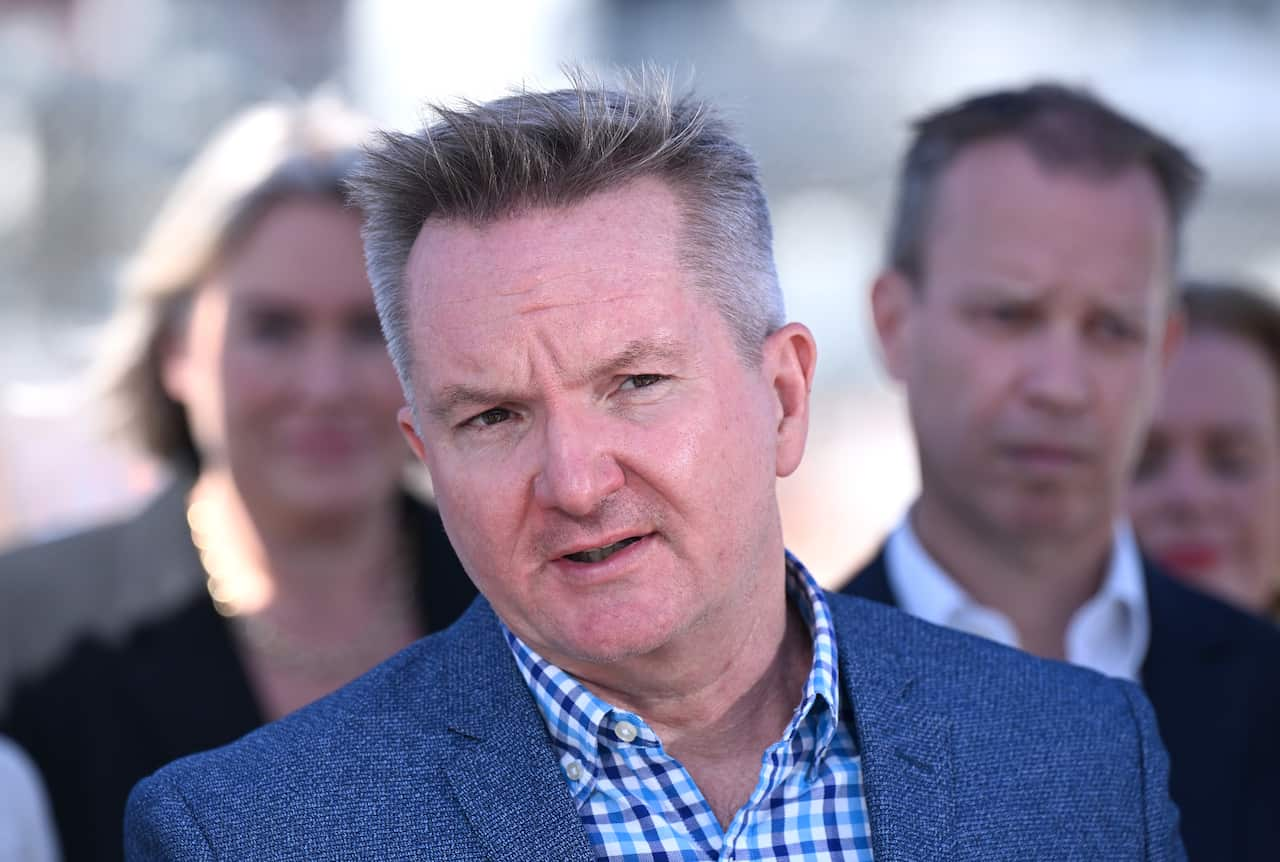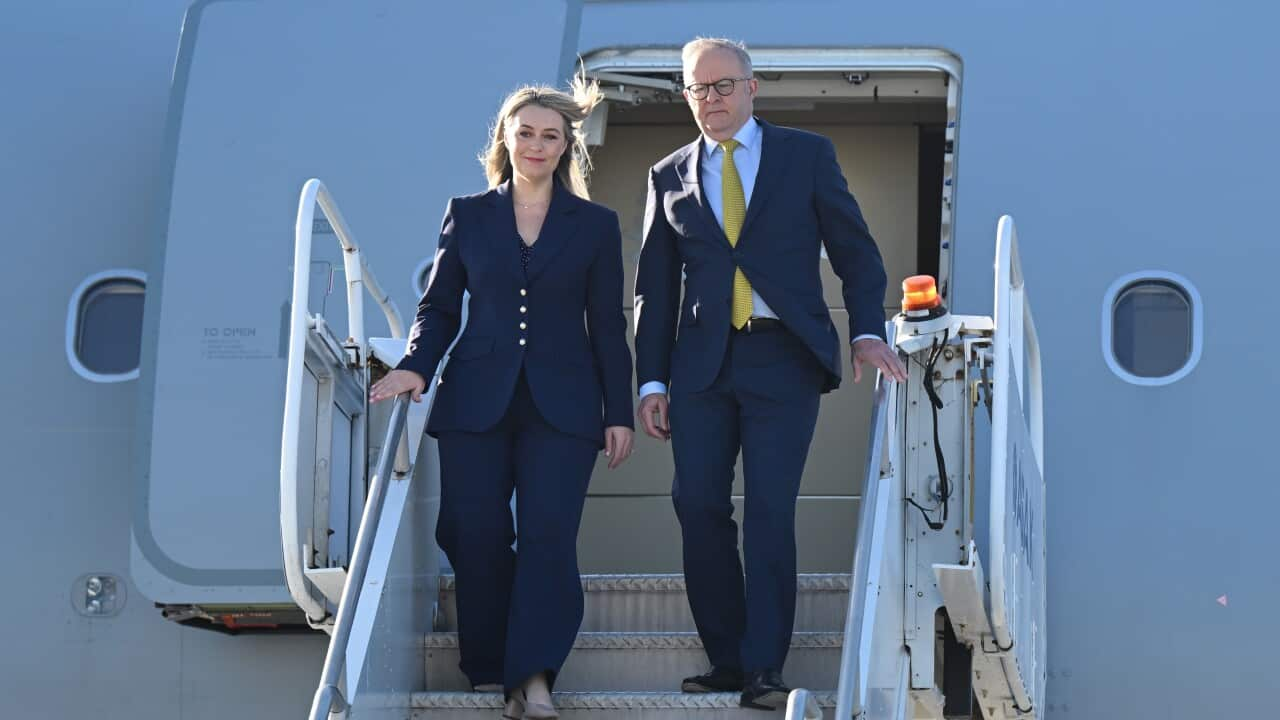Key Points
- Twenty-five Republicans in the US have warned world leaders of punitive measures for recognising Palestinian statehood.
- Australia along with other countries intend to recognise a Palestinian state during the United Nations General Assembly this week.
- A Labor frontbencher says the recognition is a step towards a two-state solution.
Federal minister Chris Bowen has dismissed warnings from US Republicans against recognising a Palestinian state or risk "punitive actions", saying Australia makes its own policy decisions free from the influence of other countries.
Multiple world leaders, including Anthony Albanese, have announced their intention to recognise a Palestinian state at the United Nations General Assembly this week.
Albanese arrived in New York on Sunday morning (AEST) for the UN general assembly and a series of meetings with global counterparts.
It came as a group of Republicans including Donald Trump loyalists Ted Cruz and Elise Stefanik warned Albanese as well as the leaders of Canada, France, and the UK against Palestinian statehood recognition, labelling the move "reckless policy" in an open letter.
Republicans warn Australia of 'punitive measures'
The Republicans warned that recognition "imperils Israel's security", telling the world leaders the move could "invite punitive measures in response".
The letter, signed by 25 members of Congress and senators, is addressed to Anthony Albanese, Canadian Prime Minister Mark Carney, French President Emmanuel Macron and UK Prime Minister Keir Starmer.
"This is a reckless policy that undermines prospects for peace," they wrote.
"Proceeding with recognition will put your country at odds with long-standing US policy and interests and may invite punitive measures in response."
The majority of the signatories were endorsed and funded by the American Israel Public Affairs Committee (AIPAC) lobby group in their 2024 election campaigns.
AIPAC have consistently criticised Palestinian statehood and in July, was scathing of Starmer and Macron.
"By threatening to unilaterally recognise a Palestinian state, Prime Minister Starmer joins President Macron in rewarding Hamas for its barbaric terrorism against the Jewish state and its refusal to free the 50 hostages it's held captive for 662 days," APAIC said in a July statement.
Minister responds to Republicans
Responding to the letter, Climate and Energy Minister Chris Bowen — who is also in New York ahead of the expected recognition — said Australia makes its own policy decisions free from the influence of other countries.
"While everyone is entitled to their views, we will determine Australian foreign policy, not anyone else," he told ABC's Insiders program on Sunday.

He said the government now saw recognising Palestinian statehood as a step towards a two-state solution, not the result of negotiations.
"I believe that Israel will be truly free and secure when Palestine is," Bowen said.
Countries move to recognise Palestinian statehood
Several countries are moving to recognise Palestinian statehood at this week's UNGA, including Australia, Canada, the United Kingdom and France.
- Anthony Albanese defends Palestinian statehood decision after US criticism
- Australia's statehood decision not a reward for Hamas, the Palestinian Authority says
- 'A distraction': Palestinians in Australia say statehood recognition isn't enough
Prime Minister Anthony Albanese said Australia will recognise Palestinian statehood this week, "predicated on the commitments Australia has received from the Palestinian Authority."
"A two-state solution is humanity's best hope to break the cycle of violence in the Middle East and to bring an end to the conflict, suffering and starvation in Gaza," he said.
British Prime Minister Keir Starmer also made the same pledge.
"With that (two-state) solution now under threat, this is the moment to act," he said.
Palestinian President Mahmoud Abbas will address the UNGA this week via video after the United States said it would not give him a visa to travel to New York.
President of UNGA Annalena Baerbock said eight decades after the UN was first established in 1945, it now has a duty to look to the future.
"This is a year to adapt, to evolve and to build the United Nations we need for the next 80 years, for the lifetimes of our children. It is a moment to show eight billion people around the world why this organisation still matters."
For the latest from SBS News, download our app and subscribe to our newsletter.

